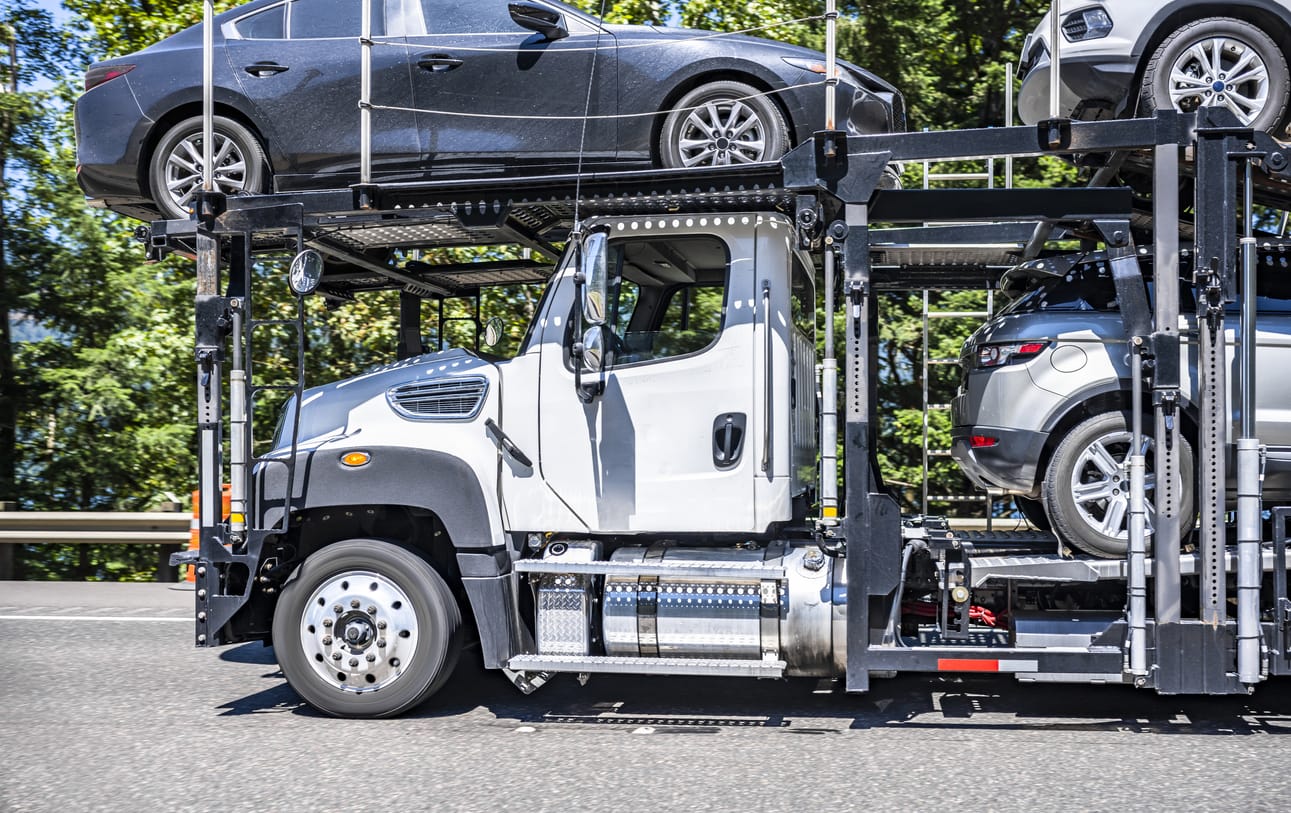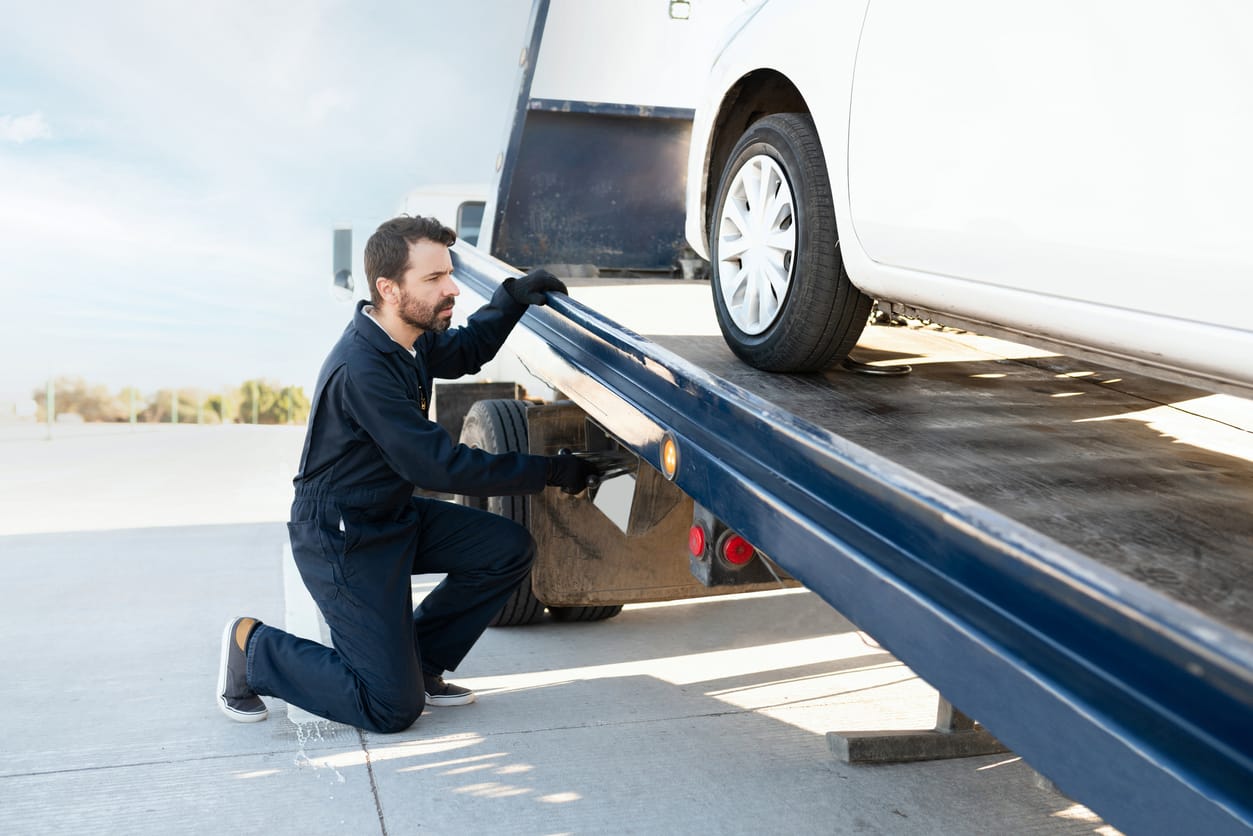Shipping and towing both have benefits and drawbacks, so to decide which makes the most sense for your vehicle, you’ll want to consider a few key metrics:
- Your vehicle. Certain vehicles, like luxury cars, are better transported by shipping, while old or non-functional cars can be a better fit for towing.
- Distance. Generally, the greater the distance your car needs to be moved, the more preferable shipping is over towing.
- Ease of transportation. Factors like highways, driver inexperience, vehicle weight and size, and weather conditions can make towing your car straightforward or challenging.

As you might expect, there are some situations where towing your car is a wise, optimal decision and other circumstances where shipping the vehicle is a better alternative. Let’s break down this car transport method’s typical pros and cons.
The first main advantage of towing your car is that you can remain with the vehicle throughout its journey, which allows you to keep an eye on it the whole time. This proximity is beneficial when your car has unique issues (e.g., faulty parts or valuable interior belongings) that need close monitoring during travel.
Additionally, towing can be cheaper if you already have the necessary equipment to tow your vehicle, including a trailer, a trailer hitch, and a second vehicle.
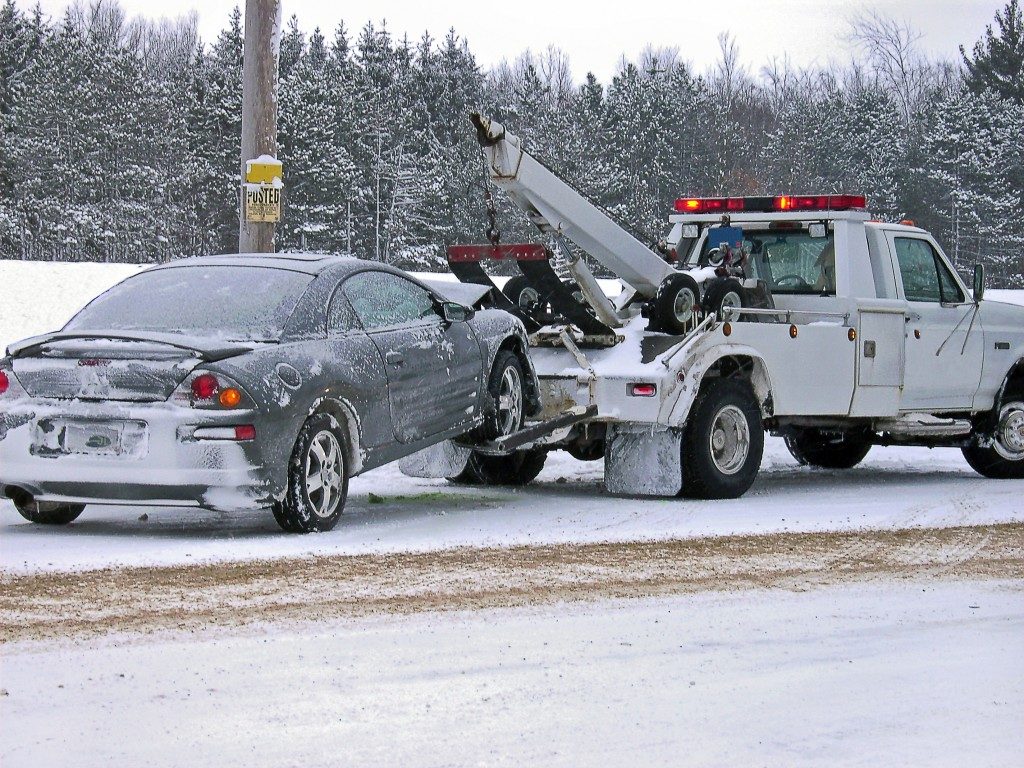
On the other, there are several common downsides to towing your car.
First, there’s a higher barrier to entry as far as equipment is concerned. If you need the necessary trailer and towing components, you’ll have to buy them, which is often more expensive than shipping.
Next, there is a greater risk of damage when towing (as opposed to shipping) your car. For example, you’ll need to be aware of wear and tear, dangerous highway conditions, faulty towing equipment, and the risks posed by a heavy vehicle when choosing to tow your car.
Lastly, long-distance towing includes costs like fuel, hotel stays, and food, making the journey more expensive than shipping.
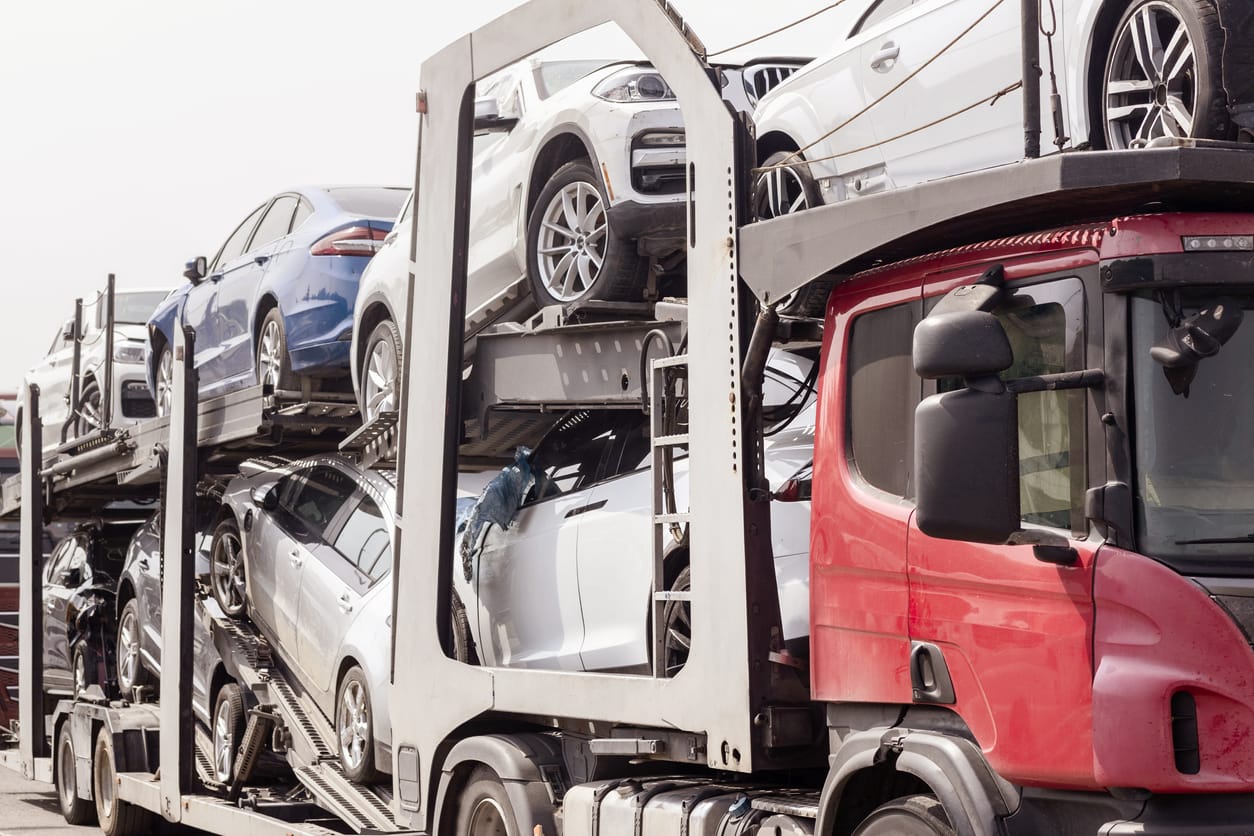
While shipping can seem a bit more intimidating of an option than towing, it’s often a more accessible and straightforward path to take. Here are some of the common pros and cons you’ll run into when shipping a car:
As a rule, shipping is more convenient than towing your car. Not only is someone else doing the bulk of the transport, but they are also experienced and skilled in navigating the potential pitfalls of relocating vehicles.
Likewise, shipping companies are especially well-suited for long-distance transport and are almost always the best choice when moving your car across state lines.
Another perk of using a car shipping service is that you can choose from different transportation options, such as open or enclosed shipping.
However, shipping your car can come with a few possible problem areas.
Generally, when you use a shipping company to relocate your car, you must make arrangements ahead of time and several days in advance. These restraints can make it a slightly less convenient method of transport.
Towing is sometimes preferable to shipping in cases where you’re dealing with a nonoperational vehicle due to loading and unloading requirements.
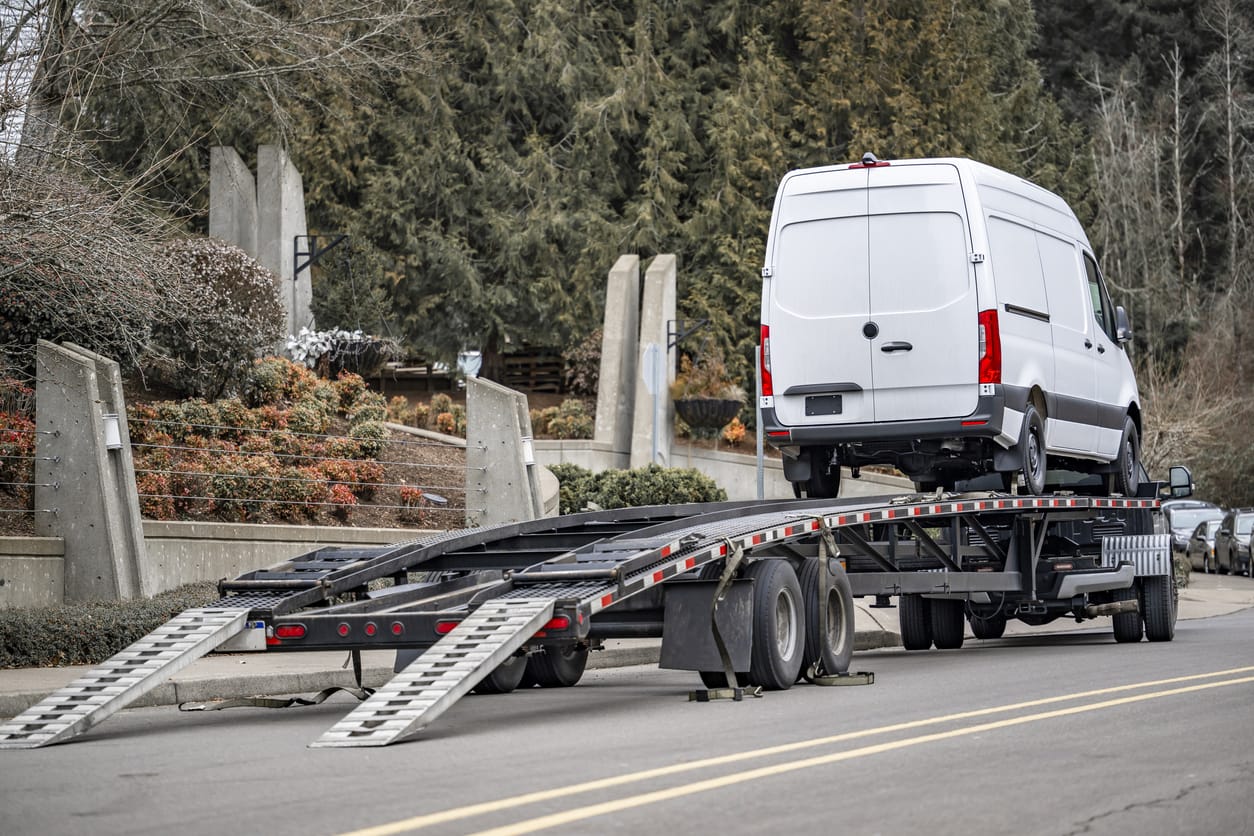
To prepare for an unburdensome towing experience, make sure you’ve met all these guidelines before hitting the road:
- Obtain the necessary equipment. Typically, this will include a second vehicle, a trailer, and a hitch.
- Budget for fuel and food. Longer towing trips are likely to require gasoline and meal expenses.
- Ensure the car is appropriately secured. An insecurely fastened vehicle can be hazardous on the road.
- Plan your route. To prevent navigation and weather concerns, it’s ideal to know your exact towing path ahead of time.
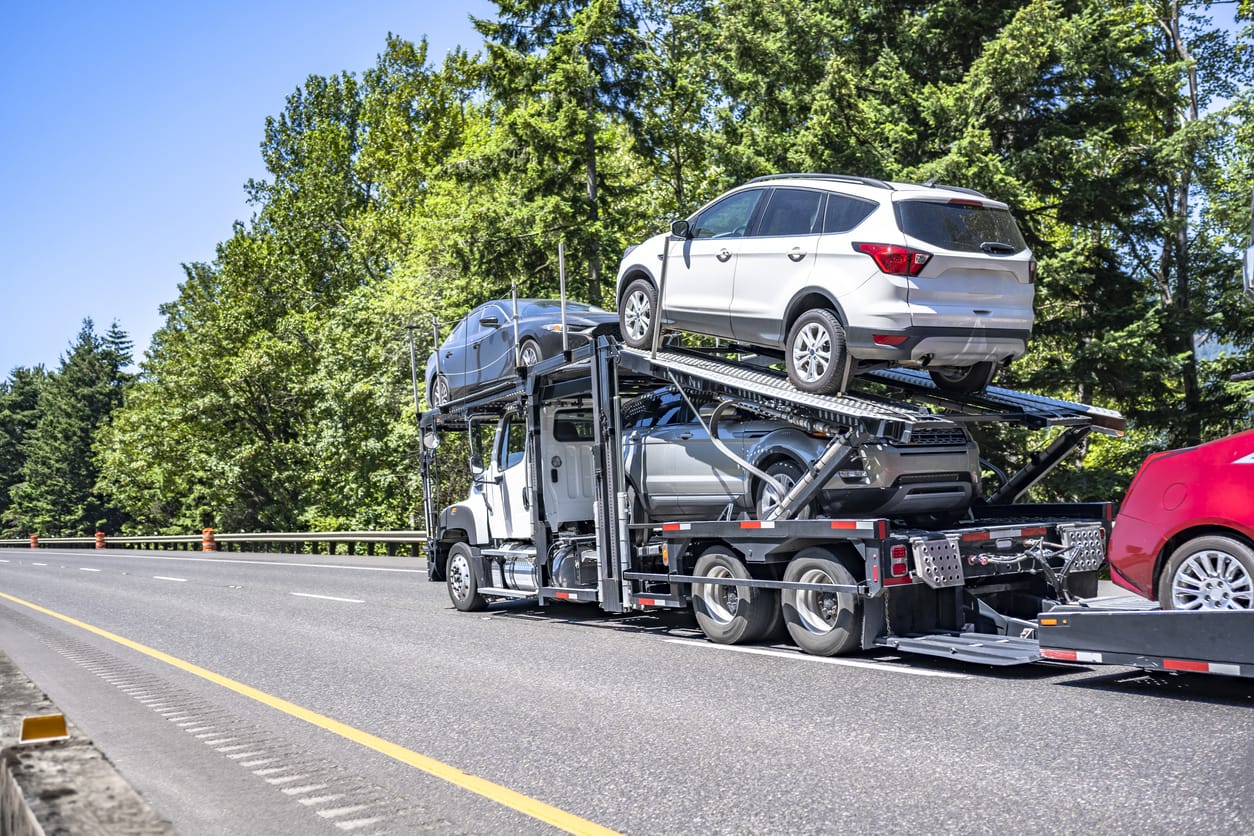
If you decide to ship your car, it’s a good idea to verify that you’ve completed all of the following steps:
- Choose a shipping company. Some companies are more reliable and reputable than others, so it’s advised to check online reviews and read the business’ website and contact information carefully.
- Pick your transportation method. Depending on your vehicle, you may opt for either enclosed or open-air shipping.
- Verify the price of shipping. Budgeting is crucial in planning your shipping, so you must be prepared for the costs.
- Double-check the pickup and dropoff locations. Since there is typically a limited period to pick up your vehicle, you’ll want to know where to leave and pick up your car well ahead of time.
Deciding whether to tow or ship your car involves considering many variables. Still, the relocation process should go smoothly so long as you weigh the pros and cons, plan your vehicle’s transportation accordingly, and keep an eye on potential trouble spots.
To have your vehicle shipped, give Ship A Car a call at (866) 821-4555.
